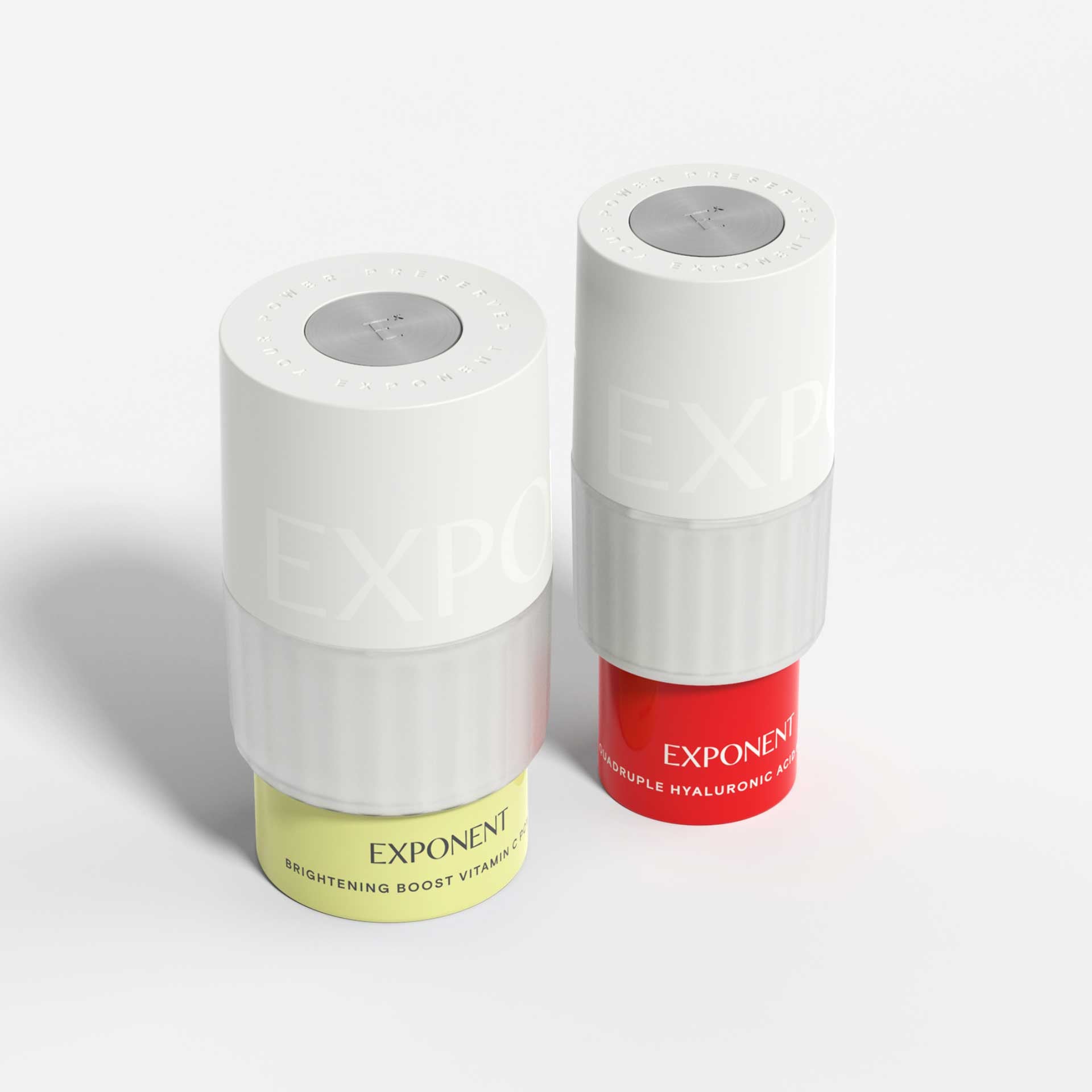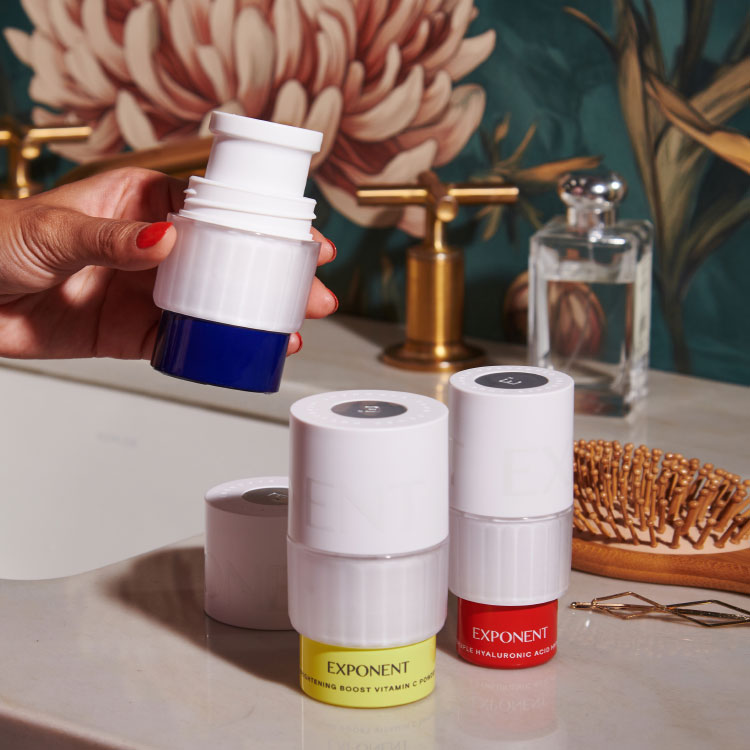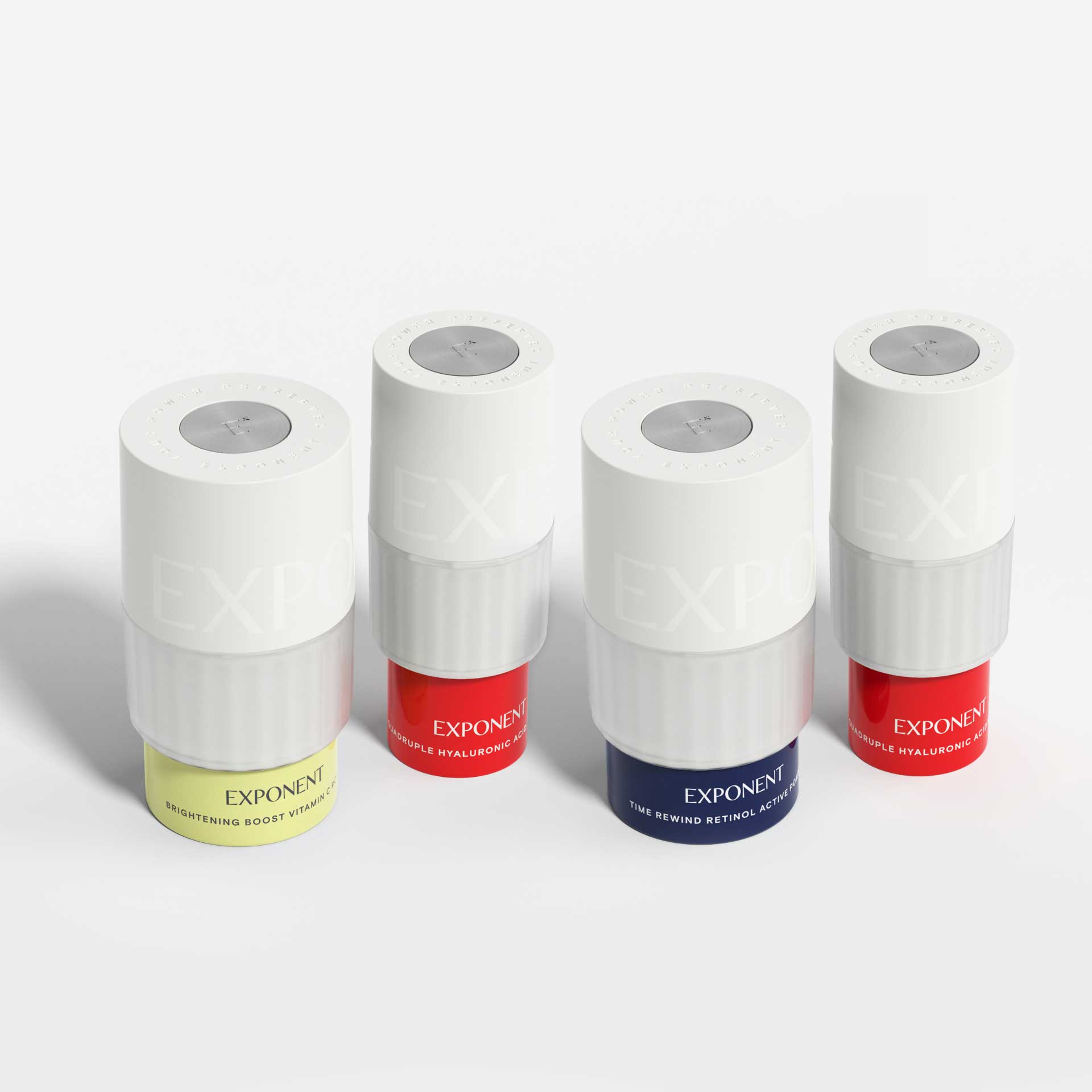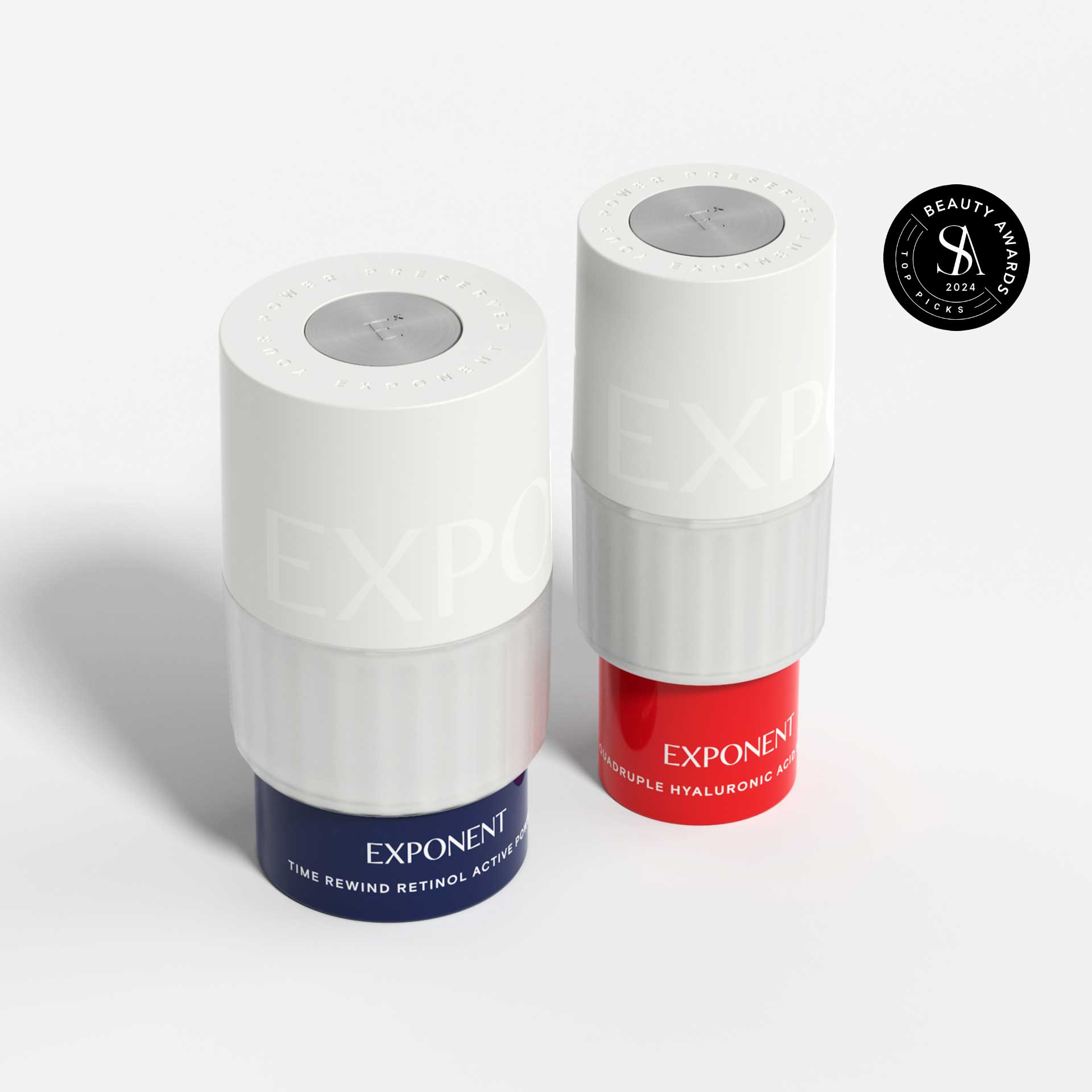The most popular actives in the skincare world, vitamin C and retinol, deserve a place in pretty much every skincare routine. Fine lines and wrinkles, discolorations, dehydration, and clogged pores are all concerns these two powerhouses address, and incorporating them into your regimen can be a one-way ticket to flawless skin. Using vitamin C and retinol have an array of benefits, but mixing them at the same time may lead to sensitivities in some cases. Retinol temporarily weakens the protective barrier, and the acidic nature of vitamin C formulations might disrupt the barrier even more. So, can you use retinol and vitamin C together? Luckily, there is a way to use these impressive ingredients together and receive the best of both worlds.
Using Vitamin C and Retinol Together
Layering vitamin C and retinol together is tricky. Outside of possible irritation due to retinol's ability to encourage cell turnover and vitamin C's acidic nature, mixing these two may cancel out their benefits because they operate at different pH levels. Long story short, retinol requires a high pH closer to the skin (around 5.0 to 6), while vitamin C needs an acidic pH (3.5 or lower) to work optimally. If mixed, the pH of vitamin C increases and that of retinol decreases, rendering your products ineffective.
Yet, you need these two in your routine because they pack a punch of benefits, hard to overlook. Vitamin C benefits stem from its antioxidant activity, and it's also excellent at lightening dark spots, inducing collagen production, and regenerating skin.[1] In addition to being an antioxidant, retinol is a cell-communicating ingredient, signaling cells to "behave," reversing damage, and renewing skin. Briefly, the benefits of retinol include cell turnover, collagen, and hyaluronic acid induction, perks that lead to less visible wrinkles, smoother skin, and even tone.[2]
So, the best way to use vitamin C and retinol together is by spacing out their application, using vitamin C in the morning and retinol in your nighttime routine. This method gives you all of the benefits without deactivating ingredients or irritating your skin.
AM Skincare Routine with Vitamin C
During the day, the skin comes in contact with numerous aggressors (such as UV and pollution), which may weaken the collagen and elastin fibers, induce dark spot apparition and make the complexion look dull. Vitamin C is the hero in your morning skincare regimen and keeps your skin shielded against free radical damage, protects existing collagen while boosting its production, brightens skin, and increases hydration.[3]
In addition to retinol, vitamin C works best with the following:
- Ferulic acid and vitamin E to fight free radicals
- Hyaluronic acid to boost hydration
- Niacinamide to balance sebum
- Glycolic acid to reduce wrinkles and dark spots
Our Brightening Boost Vitamin C mixes L’ascorbic acid with a hydrating Hyaluronic Acid to produce a power packed serum. Here is also a list of some of our other favorite vitamin C products that perform.
P.S. We recommend using them within six weeks to get the biggest benefits for your buck.
Morning Skincare Routine
Because your skin faces external aggressors during the day that may weaken and dehydrate the skin, you should focus on protection. Here is a recommended morning skincare routine:
- Cleanse to get rid of sweat and debris
- Apply an antioxidant-rich toner (optional)
- Layer vitamin C serum
- Trap the serum with a hydrating moisturizer
- Apply sunscreen with at least SPF 30
PM Skincare Routine with Retinol
Retinol is an antioxidant with cell-communicating activity that speeds up cell turnover, improves texture, induces collagen and hyaluronic acid production, softens fine lines and wrinkles, and blocks the transfer of melanin to the skin's surface, hindering dark spots apparition.[4] However, those with reactive or irritated skin should err on the side of caution when using retinol because it's more likely to lead to redness, peeling, and irritation.
Because retinol is a vulnerable compound, it doesn't pair well with all actives. Regarding complementary ingredients, here is what retinol is best combined with:
- Humectants (hyaluronic acid, panthenol, glycerin) to counteract drying effects
- Niacinamide to increase tolerance
- Ceramides to reinforce the protective barrier
- Alpha-hydroxy acids to brighten skin and reduce the look of wrinkles
- Salicylic acid to minimize acne
Night Skincare Routine
Since the skin is repairing itself while you Zzz, your nighttime routine should target repair. This is how you do it:
- Cleanse to remove junk and dust
- Use a toner with replenishing ingredients, like ceramides
- Layer retinol serum
- Lock everything with an emollient moisturizer
Vitamin C and Retinol FAQ
Can you use retinol and vitamin C together?
Using retinol and vitamin C together is excellent at keeping skin protected, soft, smooth, and even. However, they should be spaced out in your AM and PM routines so they don't deactivate each other or sensitize your skin.
How often should I use retinol?
Use retinol at least thrice weekly and up to once a day depending on how sensitive your skin is. Using retinol more often may not allow the skin to repair after its cell turnover effect, leading to irritation. Rest assured, we detailed how to use retinol serum for the uninitiated.
What should you not mix with retinol?
Don't mix retinol with drying agents, such as benzoyl peroxide, alpha-hydroxy acids, and salicylic acid. They can be used alternatively but never layered together as they can cause excessive dryness, peeling, and sensitivities.
How to start using retinol?
Start using retinol once weekly at night, then gradually increase frequency as your skin builds tolerance. Incorporating retinol slower into your routine allows your skin to adjust to it, helping prevent the chance of irritation.
When do you apply vitamin C serum?
If you're wondering how to use vitamin C serum, you can apply vitamin C serum daily, in the morning and evening, after cleansing and toning.
Should you use retinol or vitamin C first?
If your skin can handle it, start with vitamin C, and follow with retinol. This is because vitamin C is water-soluble while retinol is soluble in oil, and according to the correct order of layering ingredients, water-soluble compounds go before oil-soluble ones.
What is vitamin C good for?
Vitamin C is excellent at neutralizing free radicals and helping prevent oxidative stress. Additionally, vitamin C is involved in collagen protection and production, is great at fading dark spots and helps with moisture retention and tissue repair.
How often should I use vitamin C serum?
Use vitamin C serum twice a day, every day, for a strong antioxidant defense system, bright skin, increased firmness, and a healthy glow.
What should you not mix with vitamin C serum?
Retinol, alpha- and beta-hydroxy acids, and benzoyl peroxide should not be mixed with vitamin C. AHAs, BHAs, and vitamin C deactivate each other and can irritate reactive skin, while benzoyl peroxide may oxidize vitamin C, throwing off its benefits.
Are Your Active Ingredients Actually Working?
Vitamin C and retinol are highly effective ingredients — if the ingredients are actually active. With both vitamin C and retinol prone to degradation when exposed to light and heat, no surprise you may often use ineffective products. But that won't ever happen with Exponent products. Our refillable packaging prevents oxidation and degradation of the actives, keeping your product at its peak potency. Unlike traditional water-based formulas, our active powders keep their potency until the instant you activate them with our Quadruple Hydration Hyaluronic Serum. So, do your skin a favor and protect it with our Brightening Boost Vitamin C in the morning and support its repair with the Time Rewind Retinol at night. Thank me later.
Footnotes
- Telang PS. Vitamin C in dermatology. Indian Dermatol Online J. 2013 Apr;4(2):143-6. doi: 10.4103/2229-5178.110593, Source
- Li WH, Wong HK, Serrano J, Randhawa M, Kaur S, Southall MD, Parsa R. Topical stabilized retinol treatment induces the expression of HAS genes and HA production in human skin in vitro and in vivo. Arch Dermatol Res. 2017 May, Source
- Fitzpatrick RE, Rostan EF. Double-blind, half-face study comparing topical vitamin C and vehicle for rejuvenation of photodamage. Dermatol Surg. 2002 Mar, Source
- Ortonne JP. Retinoid therapy of pigmentary disorders. Dermatol Ther. 2006 Sep-Oct, Source








